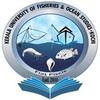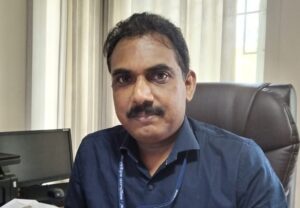Faculty of Fisheries Science
The flagship course of the Faculty, Bachelor of Fisheries Science (B.F.Sc.) is a 4-year Professional Degree Programme in Fisheries Science accredited and approved by Indian Council of Agricultural Research (I.C.A.R.), Government of India and all the respective State Governments. College of Fisheries was elevated to Kerala University of Fisheries and Ocean Studies (KUFOS) delinking from Kerala Agricultural University in 2011 and currently the course has been dealt by Faculty of Fisheries, KUFOS. At present B.F.Sc is offered by 29 Fisheries Colleges/Fisheries Universities/Agricultural Universities across the country. Dean Fisheries is the Chief Operating Officer of the faculty entrusted with the overall coordination and conduct of the course.Curriculum of B. F. Sc. is designed nationally in such a way that the graduates can perform exceptionally well in the Government and private sectors with due expertise and professionalism attained through the course.The agriculture education system including fisheries science in India was formulated following the path of Land Grant System started in United States of America in the 19th century conceptualized by Mr. Justin Smith Morril. In this system, the field level farming activities are given more importance than the class room learning. B. F. Sc. is comprised of 8 semesters (with 6 months each) out of which 6 semesters are dedicated to learning 61 number of various courses with 140 credits offered by 7 Departments.Various Departments of Faculty of Fisheries include 1. Aquaculture, 2. Fisheries Resource Management, 3. Fish Processing Technology, 4. Aquatic Environment Management, 5. Aquatic Animal Health Management, 6. Fisheries Engineering and 7. Fisheries Extension, Economics and Statistics. The last 2 semesters are exclusively allocated for Rural Aquaculture Work Experience (RAWE) and Experiential Learning Programme (ELP) in which students are trained under Rural Entrepreneurship Awareness Development Yojana (READY). There are 6 courses with 40 credits during these semesters.Thus, on completion of B.F.Sc., a student will learn 67 courses with 180 credits. The four year BFSc programme would make the student self-reliant, entrepreneurial and very much suitable for management of fisheries in general and aquaculture in particular. Since aquaculture sector is progressing much faster than any other food production sectors, the wholesome knowledge gain in this field would be potentially relevant both in personal development and that of the sector.
The PG programme of Faculty of Fisheries is M.F.Sc. (Master of Fisheries Science) which is 2 year professional post graduation to be completed with course work, research programme and thesis submission (1 year course work and 1 year course work).All Departments except the Department of Fisheries Extension, Economics and Statistics offer PG programmes in the respective areas. The Department of Aquaculture offers two M.F.Sc. programmes; 1) Aquaculture and 2) Fish Nutrition and Feed Technology.Apart from the above, the various Departments under Faculty of Fisheriesoffer PhD programmes in the respective disciplines with 1-year course work and 2-year research.
Departments under Faculty of Fisheries

